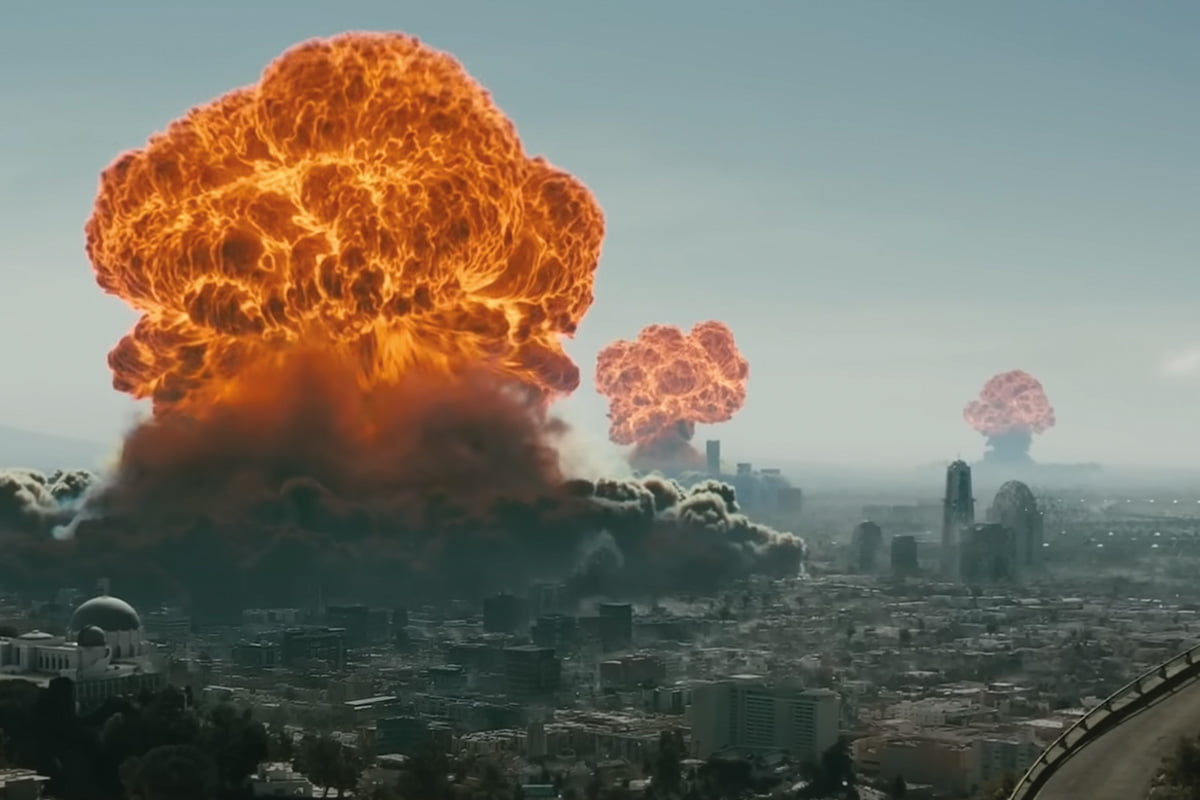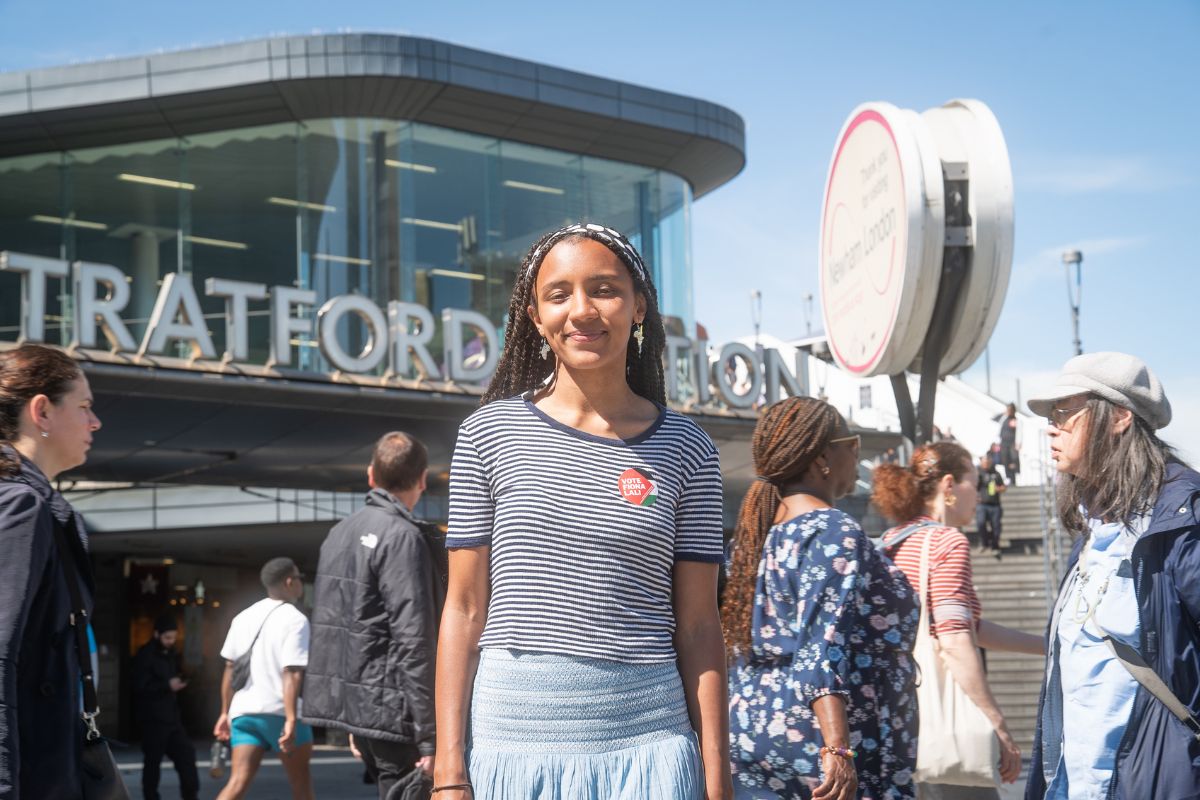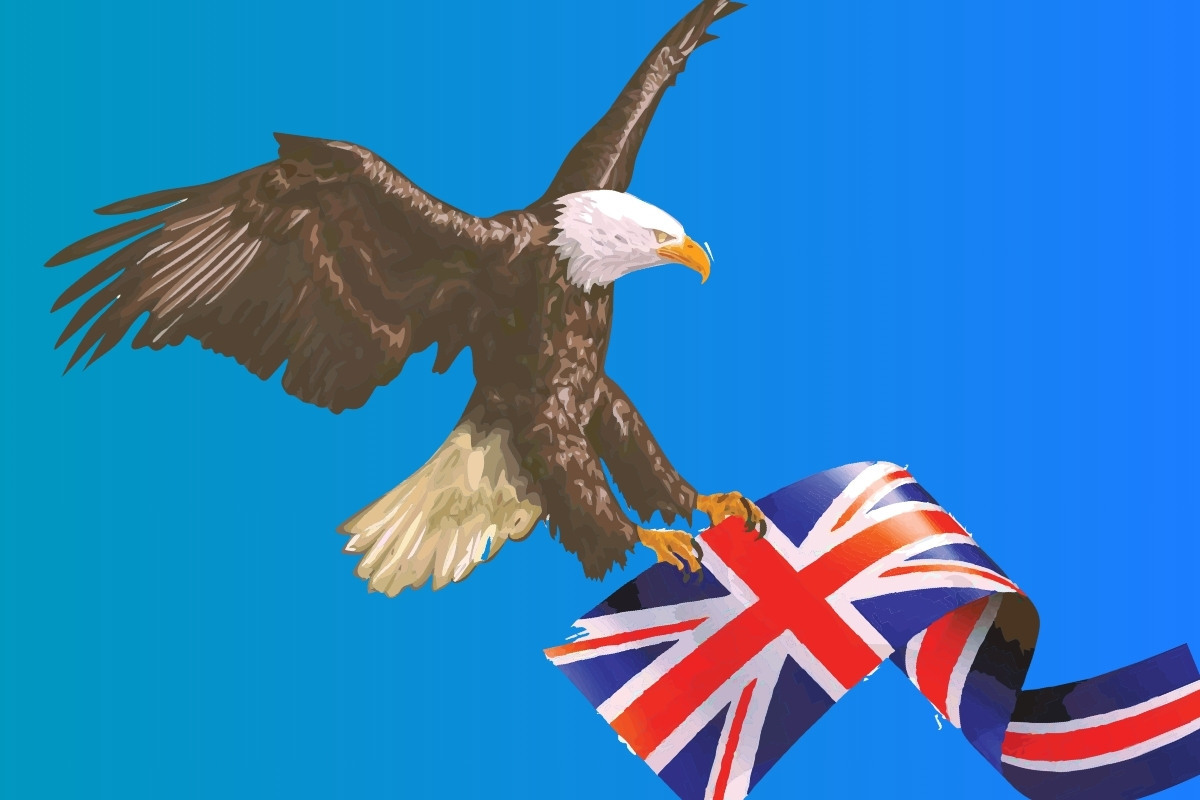Fallout, on all counts, is a blast from start to finish. For both newcomers and die-hard fans of the franchise alike, this new TV series – available on Amazon Prime – delivers a cautionary tale of the ruthlessness of capitalism and its result: the end of the world.
[WARNING: THIS REVIEW CONTAINS SPOILERS]
Fallout is the first on-screen adaption of the eponymous post-apocalyptic, satirical RPG video game. It is rooted in a divergent reality, where the cheery optimism of the 1950s never died, but the rest of the world did.
In this parallel-universe, the USA is dominated by four big monopolies, most notably Vault-Tec. These companies control the strings of their puppet state, while being locked into a bitter, Cold-War-esque imperialist struggle against a Stalinist China.
Unchallenged and unchecked, the warmongering monopolists make the decision that nuclear annihilation would increase their respective share prices.
Consequently, in the year 2077, they start the Great War and wipe out 95 percent of humanity in the process.
Human nature
The bulk of the show takes place 200 years later, following competing factions of survivors as they cling to life on the planet’s unforgiving nuclear wasteland.
Humanity has been reduced to barbarism. Violence, robbery, and cannibalism are commonplace.
This desolate picture is contrasted with the underground ‘Vaults’: bunkers that had been designed by Vault-Tec prior to the Great War to keep the rich and powerful safe during the apocalypse – shown to be worlds of plenty.
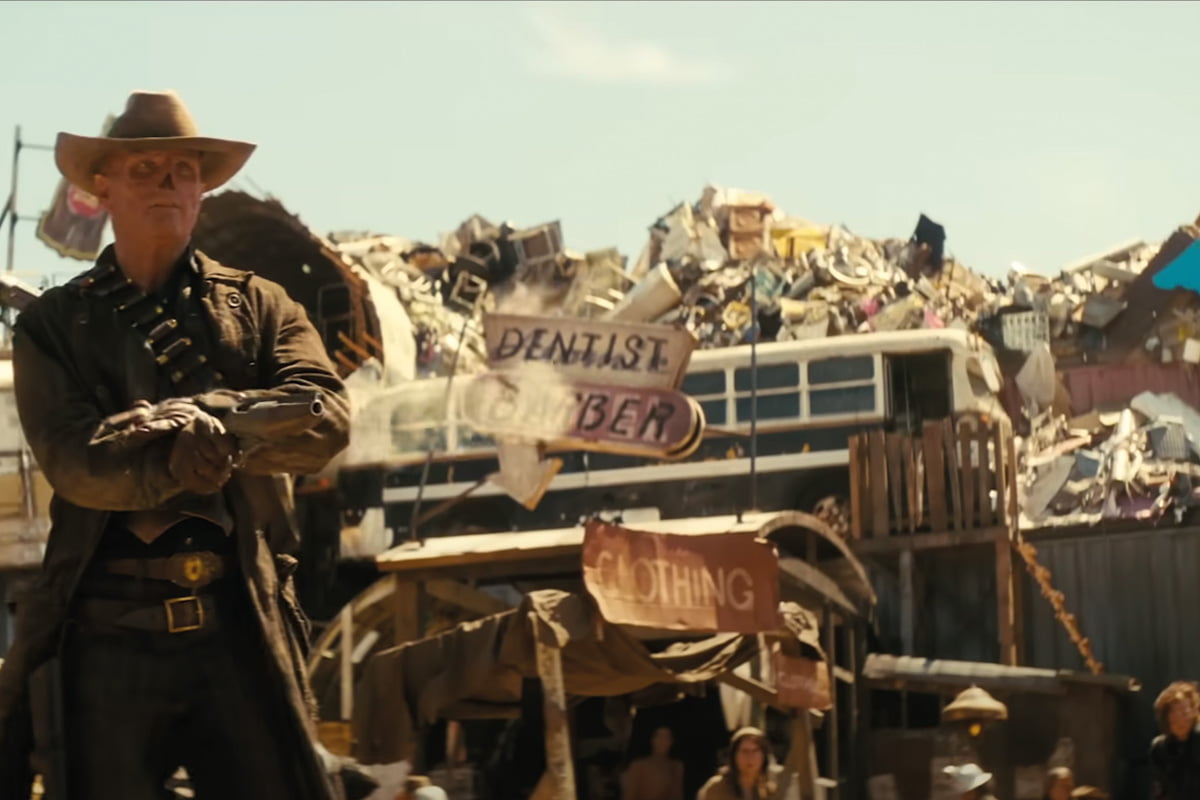
In Vault 33, home to our protagonist Lucy Maclean, private property has been eliminated as a result of this abundance. Its dwellers abhor violence, love education, and live in harmony.
The residents of other less lucky Vaults, however, are shown to have been subject to sadistic social experimentation as a form of market research. For the profit-hungry monopolies, the ruthless pursuit of new markets to control did not end when the bombs dropped – instead, it entered a new phase.
Far from offering a Hobbesian perspective on human nature, what Fallout makes clear is how the conditions that people live in shape their behaviour.
For Fallout’s characters, living in conditions where even clean water is a rare luxury, all the old crap revives, as Marx once put it.
Productive forces
This interplay between the productive forces and the social structures that exist on top of them is the driving force of the narrative in Fallout.
In contrast to the video game’s infamous conclusion that “war never changes”, the television series points out that it is who controls the productive forces that makes all the difference.
It is the same nuclear technology that – in the hands of the imperialists – brought about the end of the world, for example, which now provides near super-abundance for Vault 33.
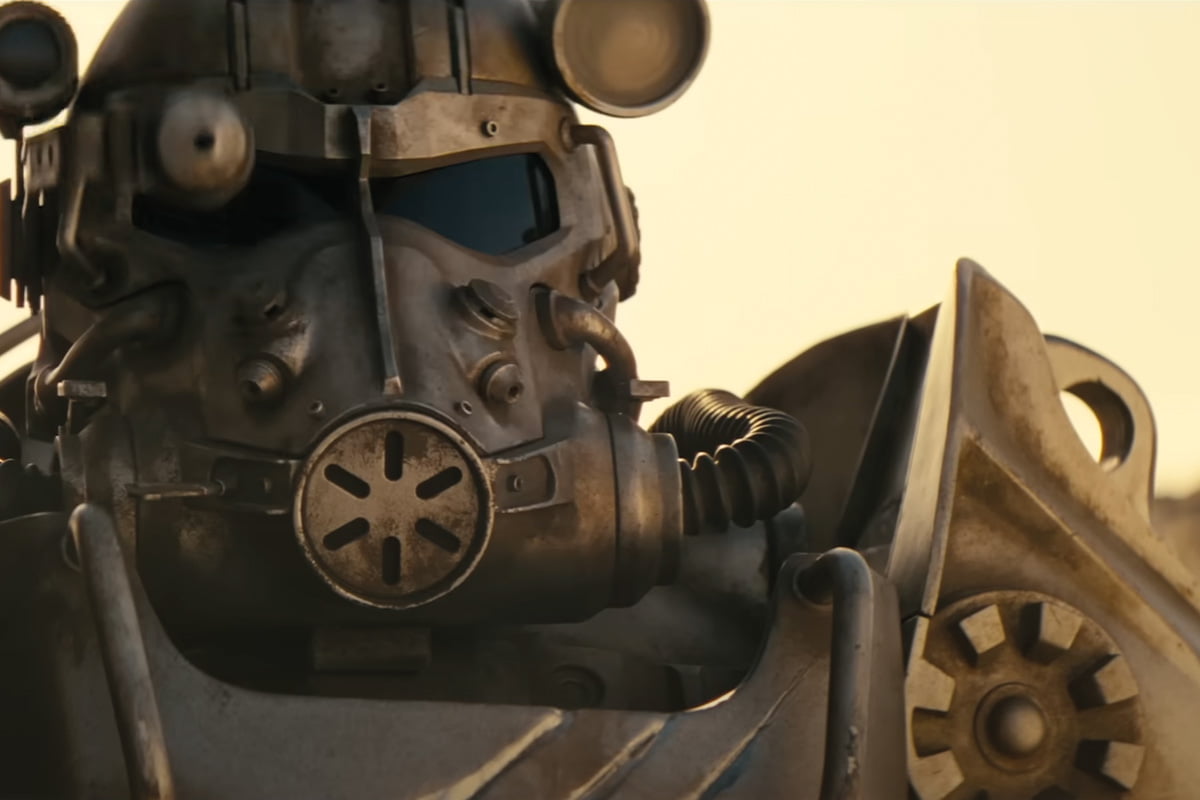
The series’ quasi-antagonist Lee Moldaver, a communist sympathiser, makes this point explicit when she discovers that cold fusion has been invented. Humanity now has near limitless technological potential.
How do the monopolies react? They make the technology proprietary, and closely guard access to it. They argue that the wars raging across Earth’s surface are unavoidable due to scarcity, while destroying a whole city-state to prevent their technology from being used for the good of society.
After all, for the pre-war monopolies, even the irradiated landscape of Fallout is simply a blank slate, ready to be carved out in their interests.
Moldaver, by contrast, sees the need and the opportunity to create a new social structure out of the wasteland of humanity, with limitless free energy as its base.
As is to be expected, the monopolies do their utmost to thwart her at every turn. Prepared to wipe out the last sliver of human civilisation to ensure complete control, the point is clear: it is the capitalists who are the greatest barbarians of them all.
The world on fire
There are countless parallels between the landscape depicted in the show and our world today. At the same time that Fallout dropped on streaming services, so did hundreds of bombs on Gaza.
The series encapsulates that – from its beginning to its end – capitalism is dripping in blood and dirt. Far from concluding that ‘war never changes’, what is clear is that it is capitalism that never changes.
Today, the alternative facing humanity of socialism or barbarism has never been so acute. Fallout paints for us a clear, cautionary picture of the horror and misery that awaits us if capitalism is not overthrown.

